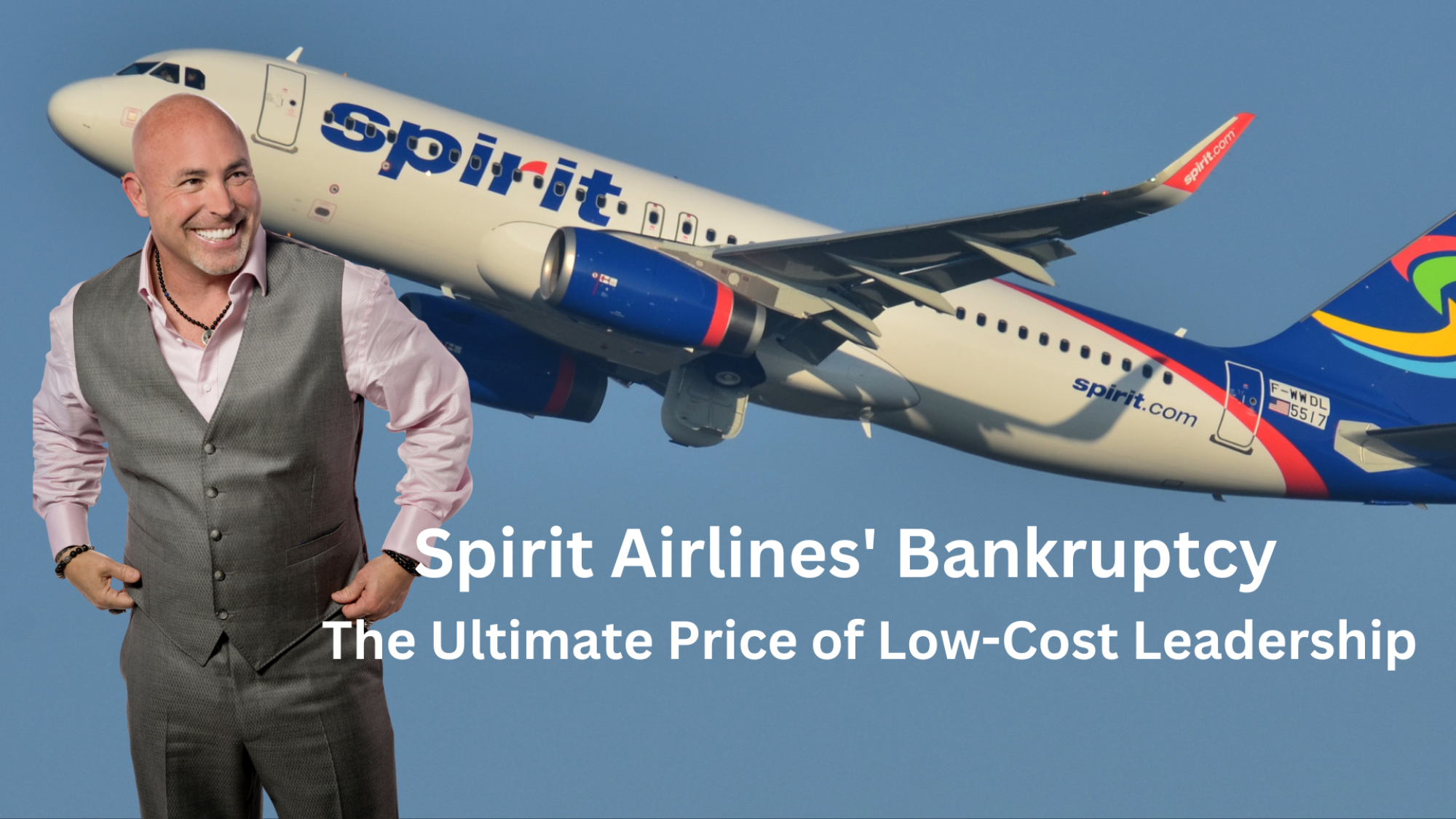
Spirit Airlines’ Bankruptcy: The Ultimate Price of Low-Cost Leadership
When Spirit Airlines first burst onto the scene, they were the maverick disruptors of the airline industry. Their bare-bones, ultra-low-cost approach was genius – they made flying accessible to millions who previously couldn’t afford air travel.
Founded in 1964 as a trucking company and reinvented in 2006 by private equity firm Indigo Partners, Spirit first revolutionized air travel with its ultra-low-cost model.
They weren’t just selling cheap tickets – they were rewriting the industry’s rulebook. But here’s the brutal truth for business owners: being first doesn’t guarantee long-term survival. Disruption is a temporary state, and competitive advantages based solely on price are as fragile as a house of cards.
As an SME (small to midsize business) owner, it’s important to recognize that your brand is your business’s unique narrative. It’s not what you sell but why you sell it and who you are. Spirit’s critical mistake was reducing itself to a single dimension: “cheap flights.” This one-note story left them vulnerable when competitors could easily match their prices.
Large competitors are always watching, waiting to replicate your breakthrough strategy. In Spirit’s case, major airlines didn’t just observe – they systematically dismantled the budget carrier’s unique value proposition. United, American, and Delta introduced their own “basic economy” tickets, effectively neutralizing Spirit’s price advantage and leaving the airline struggling to differentiate itself.
As an SME owner its important to understand that sustainable businesses are built on continuous adaptation, deep customer understanding, and a compelling brand narrative that transcends simple transactional relationships.
- Don’t compete on price alone
- Develop unique value propositions
- Create barriers to entry that go beyond cost
Spirit Airlines’ downfall reveals another critical truth for SMEs.
Strategic adaptability isn’t just a buzzword. It’s the lifeline for businesses navigating today’s volatile markets. Competitive landscapes can transform overnight and small businesses must develop the organizational flexibility to pivot, reinvent, and respond with lightning speed.
- Anticipate market shifts
- Build flexible business models
- Continuously reinvent your core offering
In a desperate attempt to avoid bankruptcy, Spirit Airlines tried multiple strategies to salvage its business model. But the Department of Justice refused a merger with Jet Blue earlier this year.
The failure mirrors the challenges many SMEs face when considering a private equity exit. It’s not just about finding a buyer – it’s about creating a business that is fundamentally attractive, resilient, and strategically positioned.
For SMEs considering significant moves like selling to private equity or merging with another company, it’s crucial to understand the broader economic and legal landscape. Working with experienced advisors can provide valuable guidance and insights.
A well-crafted exit strategy is essential, especially when anticipating potential legal hurdles. This includes:
- Market Analysis: Understanding the current market conditions and potential buyers or partners.
- Legal Compliance: Ensuring all legal and regulatory requirements are met.
- Valuation Expertise: Determining the fair market value of the business.
- Negotiation Skills: Effectively negotiating deals to maximize value.
- Risk Management: Identifying and mitigating potential risks.
It’s why I encourage SMEs who work with me to take our Built to Exit assessment, which recognizes that preparing for a successful sale is a multi-year journey, not a last-minute transaction.
Our approach focuses on systematizing your business and creating transferable value that extends beyond individual personalities or current market conditions.
The most successful exits aren’t about catching a perfect market moment – they’re about building a business that is inherently valuable, scalable, and attractive to potential acquirers. This means developing robust operational systems, creating clear revenue models, maintaining financial health, and positioning your company as more than just its current performance.
Let Spirit Airlines story serve as a reminder: Your business’s future value is determined by the strategic decisions you make today.